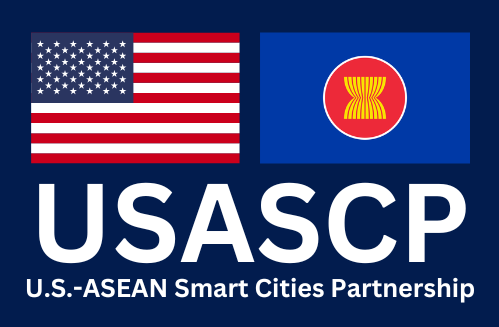Fostering Interdisciplinary Collaborations at the Nexus of Climate and Health for Global Environmental Change Research – A Way Forward
The U.S. Department of State is hosting the symposium on Fostering Interdisciplinary Collaborations at the Nexus of Climate and Health for Global Environmental Change Research - A Way Forward from Monday, October 23 to Friday, October 27, at the Anantara Siam Hotel in Bangkok, Thailand. In partnership with the National Science Foundation, Thailand Science Research…
U.S.-ASEAN Smart Cities Partnership Grantee Concludes Successful Hospital Digitization Project
The $98,750 grant from EAP/MLA enabled local NGO First Womentech Asia to launch hospital management software in 20 private hospitals and clinics in Cambodia’s three Smart Cities (Phnom Penh, Siem Reap, and Battambang). The program trained over 800 health professionals and digitized more than 100,000 health records. The Ambassador and Health Ministry Secretary of State…
U.S.-Singapore Partnership for Growth and Innovation (PGI)
Joint U.S.-Singapore activities under the Partnership (PGI), include four pillars: digital economy, clean energy and environmental technology, advanced manufacturing, and healthcare. PGI activities will address shared policy priorities, such as standards and supply chain resilience, and leverage regional networks such as the Southeast Asia Manufacturing Alliance.
US-ASEAN Smart Cities Partnership supports YSEALI Smart Cities Regional Workshop
The Young Southeast Asian Leaders Initiative is the U.S. government’s signature program to engage with emerging leaders in Southeast Asia. YSEALI seeks to build the leadership capabilities of youth in the region, strengthen ties between the United States and Southeast Asia, and nurture a community of leaders who work across borders to solve shared issues.
Vietnam Can Lead ASEAN through the Smart Cities Network Vision
With the COVID-19 pandemic yet to be effectively controlled around the world and has the capacity to recur in the near future, no one knows how much longer would the restarted economies in the bloclast. This situation, in turn, made the ASEAN Smart Cities Network (ASCN) as reached by the Southeast Asian bloc in April 2018, an ever more important priority for immediate implementation.
Joint Statement from ASEAN-U.S. on Countering COVID-19
The text of the following statement was released by the Governments of the United States and Vietnam as Co-Chairs of the ASEAN-U.S. High-level Interagency Video Conference to Counter COVID-19 held on April 1, 2020. Read Joint Statement Spokesperson Morgan Ortagus: U.S. and #ASEAN officials met virtually this week to map out the bold action we are taking together…
President Deepens Economic Cooperation with ROK, i.e. USASCP
President Donald Trump and President Moon Jae-in took steps to deepen security, economic, scientific, health, and cultural cooperation in the region. The United States and the Republic of Korea share goals on encouraging an open and innovative environment for a thriving regional digital economy. For example, the United States promotes an open, interoperable, reliable, and secure Internet, encourages private…
The Trajectory of ASEAN Smart Cities
Currently one third of ASEAN’s population live in medium-sized cities (home to between 200,000 and 2 million people) but they contribute about two thirds of its gross domestic product. By 2025, it is predicted that the population living in medium-sized cities will double, making them the main engine for the region’s economic growth. If not…
Smart City Dreams Only a Stretch Away
Vietnam is making great efforts to build smart cities based on its internal and external advantages. Ta Thi Thanh Huong, urban green growth specialist from the Global Green Growth Institute in Vietnam, writes about the challenges and opportunities that come with developing this type of city. Read Full Article From Vietnam Investment Review
 U.S.-ASEAN Smart Cities Partnership
U.S.-ASEAN Smart Cities Partnership

